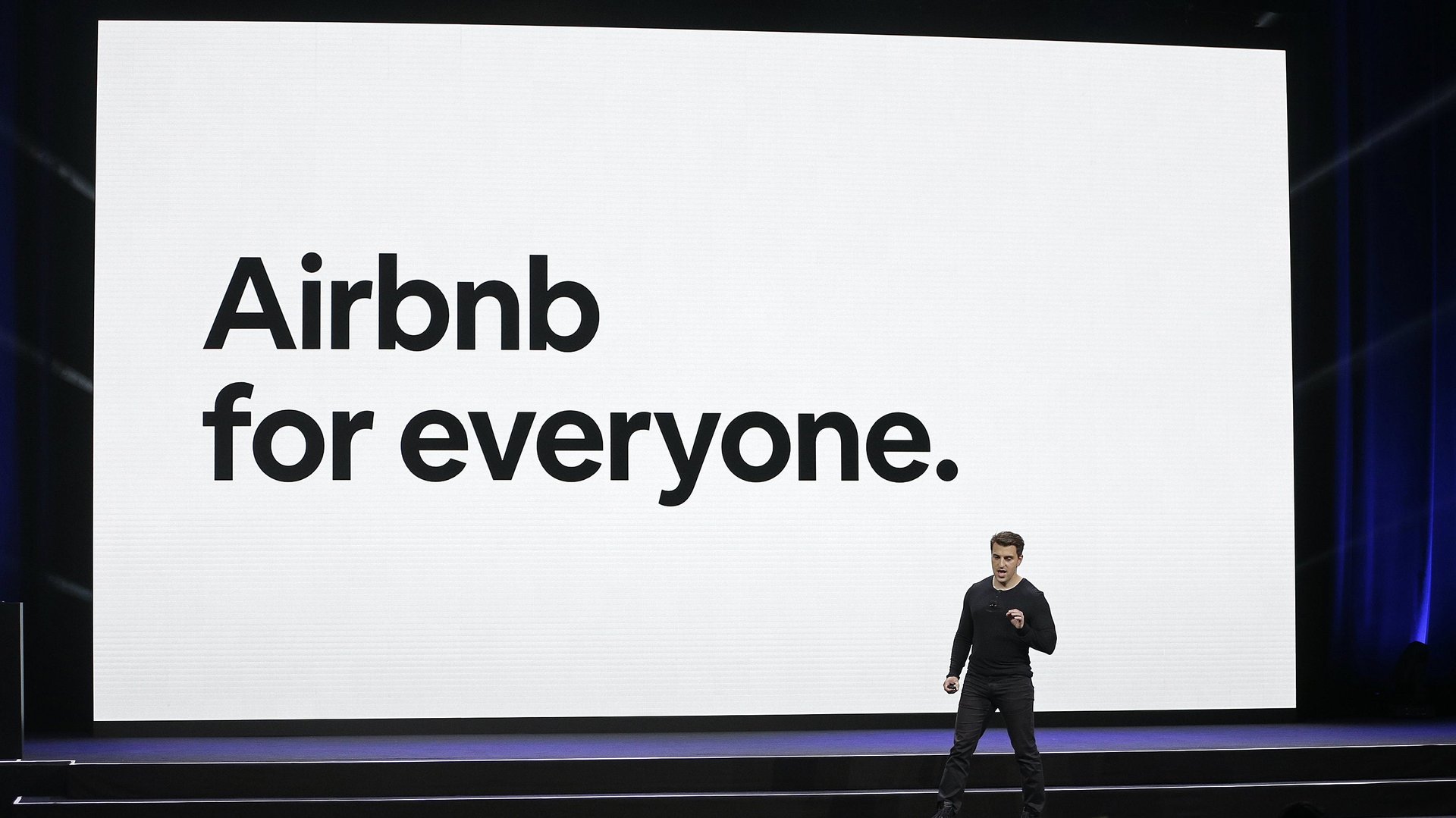It’s getting harder to see where the hotel industry ends and Airbnb begins
Once upon a time, there were traditional travel companies and disruptive travel companies. The most successful of the latter, of course, was Airbnb—the site you’d go to for everything from funky futons to high-ceilinged lofts.


Once upon a time, there were traditional travel companies and disruptive travel companies. The most successful of the latter, of course, was Airbnb—the site you’d go to for everything from funky futons to high-ceilinged lofts.
But those days are now over. Since it announced its new multi-tiered offering in February, Airbnb’s era as a quirky sharing economy startup is quickly coming to a close. In addition to its new curated Plus listings, the company has invited boutique hotels and actual bed and breakfasts onto its platform. Later this year, it’s expected to roll out a “Superguest” loyalty program along with a new high-end luxury offering. Far from its humble air mattress beginnings, Airbnb is today a major hospitality player worth more than $30 billion.
But interestingly, just as Airbnb is getting away from its roots, so too are the traditional travel companies. Marriott, one of the largest hotel companies in the world, recently went into the home share business in the form of a six month pilot partnership with Hostmaker, a London-based home rental company.
Meanwhile, both Accor Hotels—which owns Airbnb’s luxury competitor OneFineStay—and Hyatt have also made moves in the private accommodation market previously. And Booking.com recently announced that it had 5 million “alternative accommodation” listings on its platform—a number which currently outnumbers Airbnb’s amount of apartments and homes available for rent.
All of which is to say: If you can book hotel rooms on Airbnb and book a home share via Booking.com or a major hotel brand, is the accommodation industry just turning into one big mega-offering? At Skift Forum Europe in Berlin on Thursday, Skift’s hospitality editor Deanna Ting asked Airbnb’s managing director for Europe, Middle East, and Africa for his view on these new entrants into the private accommodation space.
“The concept of home sharing and staying in a flat instead of hotel room is something that people want. It’s not just millennials anymore—it’s pretty much everybody,” Airbnb’s Jeroen Merchiers said of his new hotel competitors. “The most proactive brands and hotel companies are starting to pick up on that. I welcome it. I think it’s great that we start to normalize that and as we do that more and more brands will try and pick up.”
Of course, there are still some differentiators. A site like Booking.com competes by offering a straight forward commodity; as chief marketing officer Pepijn Rijvers said at the same Skift conference: “People who come to us are not sold on a particular property type,” they just want the best price.
Airbnb, meanwhile, purports to offer users a sense of community and a feeling of aspiration. The companies’ business models—from how much commission they charge hotels to be on their platform to what percentage, if any, they charge the consumer—differ as well. Still, from the consumer’s point of view, it’s hard to ignore that as competition increases, the actual product offerings are becoming less and less differentiated.
Airbnb’s main holdouts, at least for now, are the mega chains like Hilton and Hyatt, which the company has previously indicated are not welcome on their platform. When Ting asked Merchiers if a future iteration of Airbnb might need to include mass market chains to keep up with competitors like Booking.com, he said no—but added a notable caveat: “Never say never.”